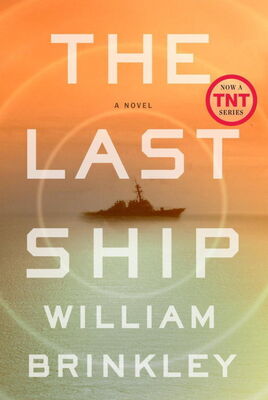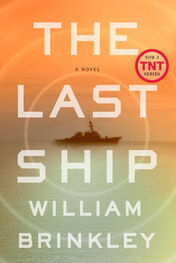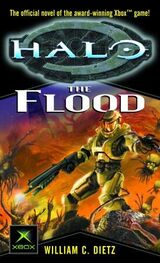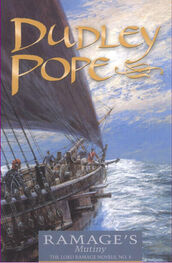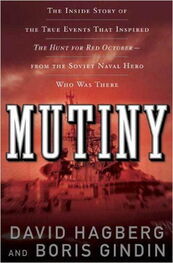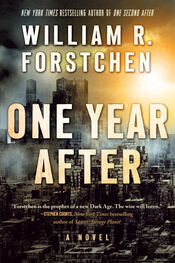“Aye, she was that.”
“I never knew a better one. Or a better ship’s company.”
For weeks afterward I had gone over it in my mind, a thousand times, every possibility, rational or irrational, logic or fantasy, having its moment… repeatedly attempting to discern what was behind those last words of the OOD, telling me the astonishing thing that Thurlow, commanding, was not immediately available… thinking of every conceivable thing that could have happened after that; the remotest connections taking their brutally tormenting turns in my mind, even Thurlow’s Russian-speaking ability, knowing Russian seamen and officers were aboard: I went so far as to attempt to determine if I could discover anything in that. Zero, as with countless other speculations, conjectures, most of them as preposterous as that one, leading nowhere.
As to the physical facts, in one of those self-inquisitions I had kept my mind orderly enough to come up with a sequence of events that bordered on the rational, using that strange word from the point of view of the perpetrators. It went as follows: The intent being to jettison all missiles they—whoever “they” were—had commenced sending off the TLAM-C’s, the conventional Tomahawks, once they had reached a safe place high in the skies detonating them with a signal from the ship. To jettison the nuclear Tomahawks, they had only to leave them nonarmed—the arming being done by the same keys that launched the missiles. This they had succeeded in doing. Then something had happened with only one missile. Quite possibly, because of an inexactitude in the programming by someone not so exquisitely honed in the highly refined skills required by the procedure, inadvertently arming this single Tomahawk. The missile exploding, it had thereupon sent its neutrons back to the nonarmed missile trailing it, exploding the fissionable material in its warhead, this one then doing the exact same thing to the missile behind it; the sequence continuing through all the nonarmed nuclear-warhead missiles that followed. These deductions, initially occurring, seemed to me the first ones of a clear reasoning and in my desperateness for explanation I seized on them, assorted doubts, vicious in character, continuing to stab at me. Too neat—it was all too neat. And yet it carried all logic. As far as the explosion on the ship was concerned, the violence of it almost dictated that it could have been only one thing. The VLS—the missile launcher, the cells containing the missiles—had blown up. One or both of them. Blown up from some kind of malfunction perhaps having to do with operations to which it was not accustomed. Blown up not from explosion of nuclear warheads which had to be armed to do so, but from the many conventional missiles in its magazines—Tomahawks, Standards, Harpoons—all lethal by any but nuclear standards. A malfunction.
These various conjectures helped—but stopped far short of bringing me any kind of peace. The suspicion that hovered over all three of those whose very images kept passing relentlessly through my mind, each having expressed at one time or another that preference, being so obvious as to make one suspicious of the theory itself: that one or all had meant only to jettison, do away with the missiles, that something then had gone monstrously wrong. That only one had decided actually to attempt that goal the more likely theory, that he could have secured the necessary cooperation of the one with the other key… the mind fiercely resisted. Myself at first driven to the very edge by the effort to sort out, to untangle what could never be solved, as in some impossible feat of marlinspike seamanship… Delaney knowing the location of Girard’s key, Thurlow of mine, Girard also knowing the latter… it had taken me a while to remember that, a seemingly distant memory which I realized I was perhaps keeping deliberately shrouded in uncertainty, in imprecision, an intentional failure to remember, lest itself move me across that line, of a conversation in the cave in which having told me the location of her key, she had asked me almost playfully the corresponding information as to mine; the idea having occurred these past weeks that what had seemed at the time so lighthearted and happenstance had in fact been deliberate and purposeful on her part; this idea so freighted with horror that I banished it as a threat to sanity, along with one even more terrible, that the murders of eight sister shipmates had in some inexplicable way pushed her to what she judged to be an act of atonement for what the ship had done long ago… such speculations spawning other memories of what had taken place in that cave between us, these rushing in savagely to attack me. I had trembled on the brink of the chasm. And something else. Herself helplessly a part of the enigma, each time it rose in my mind, so did she, many other times as well; and each time myself, crossing unknown frontiers of sorrow, seized with a pain so great I knew I would not survive if I continued to allow it such free access to my soul. Her, the gone ship, the gone shipmates, all of it.
I had decided that it would serve no purpose to tell anyone of my and Girard’s backup arrangement, that Delaney had known the location of one missile-launch key, Thurlow of the other. So much was unknown, the knowledge might harm the memory of the innocent. But then, after all this time, I had determined on one possible exception to this vow of silence: the Jesuit, swearing him to secrecy. I had waited. Now I decided it was best for him to know; but more important, feeling that the act of telling him would somehow make possible what I so desperately desired: not to erase entirely the last shred of remembrance—I could not hope for that, did not even wish it; but to stop the interminable questioning in my soul, as acts of confession are said to do. And so, on this hillside in Antarctica I related the circumstances, most specifically as to who had had access to the keys, while he listened in a silence deep as that of the great white spaces that surrounded us.
“An accident,” I said, ending the account, surprised at the something like harshness in my voice. “It had to have been an accident.”
I felt I could live with that; not at all sure I could with anything else; suddenly aware that he, the most percipient of men, knew this to the finest degree of sensibility.
“I prefer to think it was an accident,” I said more quietly.
“I understand, sir.” He waited a moment. “The damned things were never safe.”
Somehow—who can ever explain the simplicities of these mysteries?—it was as if some intolerable burden were lifted from me; that I turned away from it; indeed that we both did. Faced a new direction. As if to say so, that the matter was closed, that the past was gone as all pasts must and we need concern ourselves only with the future, he spoke of another thing, even his voice wonderfully changed, in it an altogether bright if quiet tone.
“It looks as if we made it, Captain,” he said. “The babies.”
Some of that extra space in Pushkin will be a nursery. Three of the women are now pregnant. Ensign Martin, Signalman Bixby, Seaman Thornberg. The doc reporting that they are coming along fine. Their children will be Russian-American, American-Russian: Take your choice. Selmon was right about that, too, as he was right about so much: The next fathers of mankind are to be submariners.
He would never say it so I did, not excessively irreverently or sacrilegiously, I felt; perhaps a certain wryness in my voice.
“You mean God is going to give us a second chance?”
He allowed himself a soft smile. “Remember you said that, Captain. Personally, I never presume to go around quoting Him. But it does look that way, doesn’t it?”
Suddenly the profound Antarctic stillness was shattered by the three loud blasts of Pushkin ’s foghorn: striking haunting and lonely over the great solitude of the world around us, seeming to roll and echo off the nearby whitened peaks. It was the two-hour signal before getting underway that had been arranged; summoning sailors to the sea.
Читать дальше